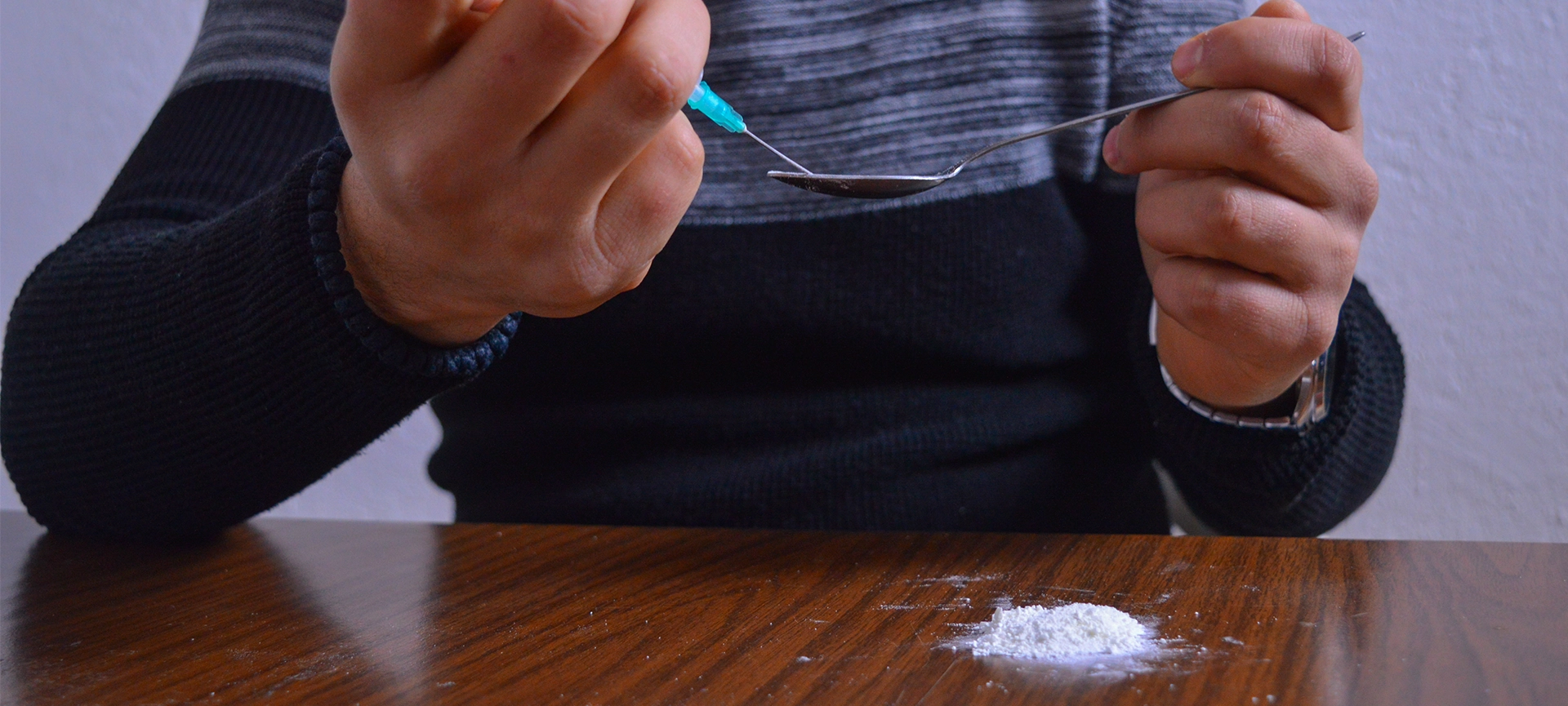Substance misuse, particularly meth addiction, can profoundly affect individuals, leading to various health and safety issues. One significant aspect often overlooked is the co-occurrence of mental health disorders alongside substance use disorders (SUDs). Dual diagnosis, the simultaneous presence of both conditions, presents unique challenges and requires a comprehensive approach to treatment. It’s why many people like you have questions about treating meth addiction alongside co-occurring mental health disorders.
This blog delves into the significance of dual diagnosis and explores the importance of integrated treatment strategies to address co-occurring mental health disorders in meth addiction.
Understanding Substance Use Disorder (SUD) and Mental Health Disorders
Substance use disorder (SUD) is a mental health condition characterized by problematic patterns of substance use that cause distress and impair daily life. SUD exists on a spectrum and may involve an overwhelming desire to use the substance, increased tolerance, and withdrawal symptoms after a few days without use.
On the other hand, mental health disorders encompass various conditions affecting an individual’s emotional, psychological, and social well-being.
The following mental health disorders often occur alongside meth addiction:
- Depression
- Anxiety disorders
- Schizophrenia
- Personality disorders
- Bipolar disorder
- Attention-Deficit/Hyperactivity Disorder (ADHD)
The Link Between Meth Addiction and Co-occurring Mental Health Disorders
Meth addiction and co-occurring mental health disorders are closely interconnected. Methamphetamine use, a highly addictive substance, can alter brain chemistry, triggering underlying mental health issues like depression, anxiety, or bipolar disorder.
Bidirectional Influence
Co-occurring mental health disorders and substance use disorders (SUDs), including meth addiction, can influence each other bidirectionally.
For instance, individuals with pre-existing mental health disorders may turn to substance use as a form of self-medication to alleviate their symptoms temporarily.
However, meth abuse can worsen the underlying mental health condition over time, making it more severe and challenging to treat.
On the other hand, prolonged meth use can lead to various psychological symptoms, such as depression, anxiety, and psychosis. The presence of one condition can intensify the other, creating a cycle of worsening symptoms and challenges.
Shared Underlying Causes
Co-occurring mental health disorders and meth addiction may have shared underlying causes, making treatment a complex endeavour.
Genetic factors and environmental influences like stress or trauma can contribute to mental health disorders and SUDs. These common risk factors can make you susceptible to experiencing both issues simultaneously.

Complicating Treatment
The presence of co-occurring mental health disorders can complicate the treatment of meth addiction. If not addressed simultaneously, untreated mental health issues can hinder recovery from meth abuse.
Additionally, many addicts may mistakenly believe using meth helps alleviate their psychiatric symptoms, leading to difficulty abstaining from the drug.
Therefore, integrated addiction treatment approaches that target both conditions are essential for effective recovery and improved outcomes.
Prevalence
Co-occurring mental health disorders and substance use problems are more common than often realized.
Studies show that about 50% of individuals with severe mental disorders are affected by substance abuse, and 29% of those diagnosed with mental illness abuse alcohol or drugs.
The prevalence of dual diagnosis highlights the need for specialized treatment programs that address the complex interplay of these conditions.
Related Article: Dual Diagnosis: Addressing Co-occurring Mental Health Disorders in Alcohol Addiction
The Challenges of Dual Diagnosis in Treating Meth Addiction
Dual diagnosis poses unique challenges in the realm of addiction treatment. The simultaneous presence of mental health disorders and SUDs can complicate diagnosis, as symptoms may overlap or mask each other.
This can result in misdiagnoses and hinder effective treatment. Additionally, untreated mental health disorders may contribute to relapse and hinder recovery.
- Diagnostic Difficulties: Detecting a dual diagnosis can be challenging as substance abuse may mask underlying mental health issues, or mental health symptoms may be attributed solely to substance use. This can lead to misdiagnosis or delayed treatment for either condition.
- Fragmented Care: Mental health and meth abuse services may be provided separately, leading to fragmented care. This disconnect between services may result in patients falling between the cracks and not receiving the needed integrated support.
- Mutually Reinforcing Symptoms: Meth addiction and co-occurring mental health disorders can mutually reinforce each other, creating a cycle of worsening symptoms.
- Limited Treatment Approaches: Treating individuals with dual diagnosis requires specialized treatment approaches that address both the addiction and mental health aspects concurrently. The lack of integrated treatment options can hinder successful outcomes.
- Increased Vulnerability: Individuals with dual diagnosis, especially children and adolescents, face significant social and financial burdens, making them vulnerable in terms of public health.
- Treatment Dropout Rates: The complexities of dual diagnosis can lead to higher treatment dropout rates as you or your loved one may struggle to adhere to treatment plans or feel overwhelmed by the challenges of addressing both conditions
- Prevalence: Co-occurring disorders are more common than often realized, making it crucial to improve strategies for screening, identifying, and treating dual diagnosis to meet the growing demand for integrated care.

Integrated Treatment Methods for Co-occurring Mental Health Disorders & Meth Addiction
An integrated treatment approach recognizes the interplay between mental health and addiction and aims to improve overall well-being and functioning.
Let’s explore the primary objectives and professional treatment options for this approach.
Holistic Assessment
Integrated treatment begins with a thorough assessment of your mental health, substance use history, and any co-occurring disorders. This comprehensive evaluation helps healthcare professionals tailor a personalized treatment plan that addresses the unique symptoms and interactions of each condition.
For instance, a patient with both anxiety disorder and meth addiction would undergo an assessment to identify how their anxiety influences their drinking behaviour and vice versa.
Addressing Root Causes
Integrated treatment recognizes that co-occurring disorders often share common underlying factors, such as trauma or genetic predispositions. Addressing these root causes can lead to more effective and sustainable recovery.
A person who experienced childhood trauma may turn to meth as a coping mechanism. Integrated treatment would involve trauma-informed therapy to address the root cause while also addressing the addiction.
Collaborative Care
Integrated treatment involves a collaborative approach among various healthcare providers, including psychiatrists, psychologists, addiction specialists, and counsellors. This interdisciplinary approach ensures comprehensive care and support.
Evidence-Based Interventions
Integrated treatment combines evidence-based interventions from both mental health and addiction fields. These may include cognitive-behavioural therapy (CBT), dialectical behaviour therapy (DBT), motivational interviewing, and medication management.
A person with co-occurring anxiety disorder and alcohol addiction may receive CBT to address anxiety symptoms while also learning coping strategies to reduce alcohol use.
Education and Support for Families
Integrated treatment involves educating and involving the family members of individuals with co-occurring disorders. Family support plays a crucial role in the recovery process.
Family members participate in therapy sessions and support groups to understand the challenges their loved one is facing and learn ways to support their recovery.
Other treatment options for dual diagnosis involving meth addiction and co-occurring mental health disorders include:
- Medical Detoxification: When necessary, integrated treatment may begin with medically supervised detox to safely manage withdrawal symptoms from meth.
- Psychotherapy: Individual and group therapy sessions are essential components of integrated treatment. Therapies like CBT and DBT can be particularly effective in addressing both addiction and mental health concerns.
- Medication Management: Certain medications can help manage mental health symptoms and reduce cravings associated with meth addiction.
- Support Networks: Surrounding yourself with a supportive network of friends, family, and support groups can foster lasting recovery.
Overall, integrated treatment offers a comprehensive and coordinated approach to address co-occurring mental health disorders and meth addiction. By addressing both conditions simultaneously and tailoring the treatment to your needs, lasting recovery and improved well-being are achievable.
Related Article: Meth Addiction Recovery: How to Stay Sober

In the End
Dual diagnosis, the co-occurrence of mental health disorders and substance use disorders, is critical to consider when addressing meth addiction. A comprehensive and integrated approach is essential to effectively treat individuals with dual diagnosis.
By combining evidence-based therapies, medication-assisted treatments, and recovery support services, addiction care providers like Addiction Rehab Toronto can significantly improve outcomes and enhance the overall quality of life for those battling co-occurring mental health disorders in meth addiction.
It is time for you to recognize the importance of integrated treatment strategies and support in your journey toward long-term wellness. Call us at 1-855-787-2424 to discuss integrated treatment approaches for you or your loved one.







